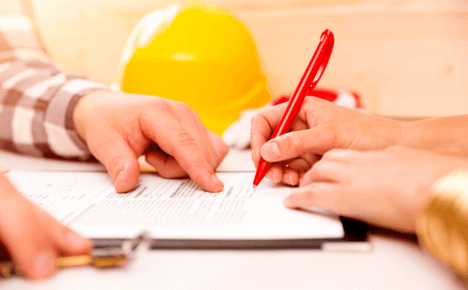People and organizations spend more than $10 trillion annually on building and construction activities worldwide. In fact, experts anticipate this number to increase by 4.2% by 2023. A large proportion of this amount results from the rapid development of technical developments that affect most components of the construction ecosystem. A 2020 report from McKinsey noted an increase in interest in AI-based solutions in the construction industry.
Generally, using AI in the construction industry can help stakeholders in every step within a project’s lifespan. Thanks to its flexibility and efficiency, it can benefit them by covering design and planning, bidding, financing, and asset management. In fact, many construction companies have noticed the increased benefits of using AI to tackle some of its most complex problems, such as drafting construction contracts, handling safety concerns, reducing labor shortages, etc.
Increased Use of AI and Automation in the Construction Industry Creates More Opportunities in the Economy, Society, and Businesses
In recent years, construction firms have employed AI in many ways to improve efficiency and innovation. AI is already demonstrating its usefulness in the construction sector by helping construction companies and their managers automate several repetitive but crucial jobs for managing their operations. Some of these tasks include:
Drafting and Reviewing Construction Contract Agreements
Before starting any construction project, it is vital to put in place a viable contract that encompasses all the responsibilities of each party involved—this aids in minimizing confusion and optimizing overall operations. Contract redlining and negotiation are important for all construction companies, especially for trades and developers. Having a clear understanding of contract clauses is crucial to negotiating favorable terms, reducing risk, and pricing the work accurately. With AI contract software, like BlackBoiler, business owners can more easily review and negotiate contracts and identify and remediate risks, reducing the time to reach a completed and agreed contract.
3D Printing
Many construction companies have realized the benefits that 3D printing and AI bring to the table. Not only do they help in designing and building structures precisely, but they also aid in minimizing labor expenses, time, and waste materials.
Scheduling
It is common for mega construction companies with megaprojects to go above their estimated construction budget, even if they have the most skilled team. However, the use of AI in the construction industry has enabled such companies to accurately forecast cost overruns using variables like type of contract for construction, project size, and the project manager’s skill level. Artificial intelligence can assist in developing workable project schedules for the future and avert any construction delays.
Enhanced Safety Measures
Likewise, many construction companies have realized the benefits of using AI-enabled surveillance to watch over construction sites. Such sites usually have expensive machinery and equipment, making them a magnet for theft. AI-based surveillance systems aid in keeping an eye out for unusual movement on the site and alerting the appropriate personnel.
AI in Construction: The Future
AI in construction has a bright future due to its broad applicability. So far, it has significantly impacted building planning and continues to show immense potential in transforming construction operations. For instance, a survey by Arcadis reports that construction companies have to hire a minimum of four million workers annually to fulfill industry demand.
However, if this requirement is not met, the construction industry will become more dependent on AI technology and machine learning regarding administration and design work as well as on the actual construction sites. As a result, many industry professionals in this business believe that machine learning and artificial intelligence will render the industry human-free by displacing employees with cutting-edge machinery.


